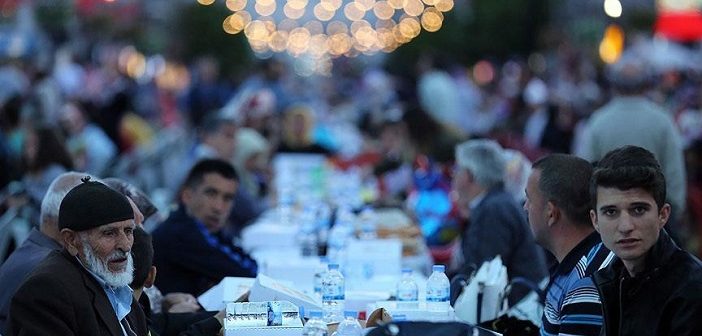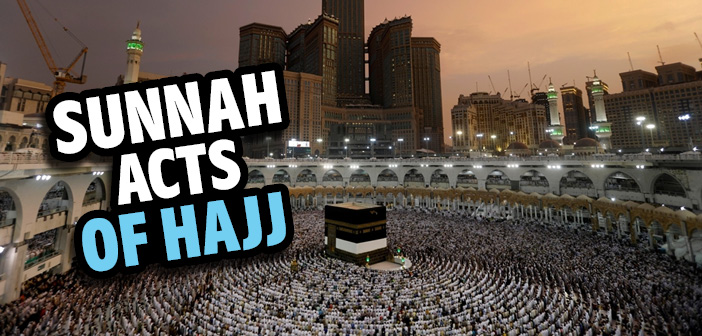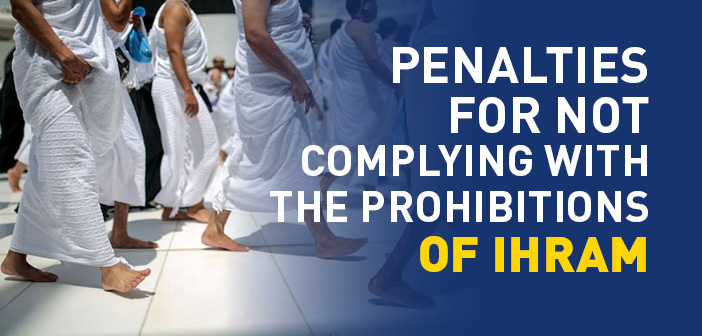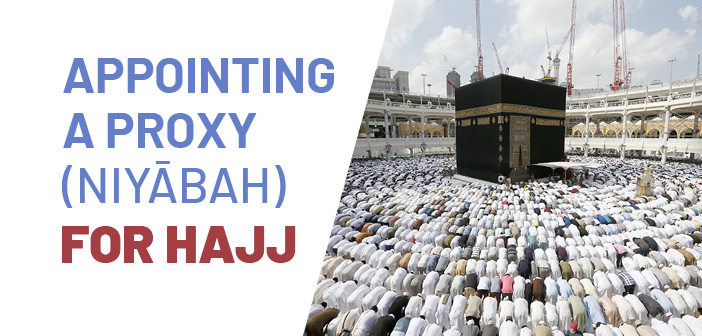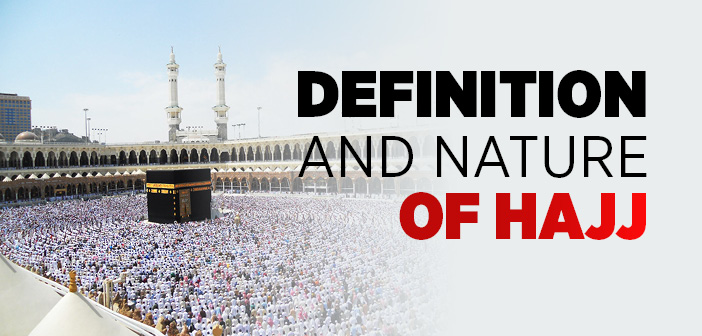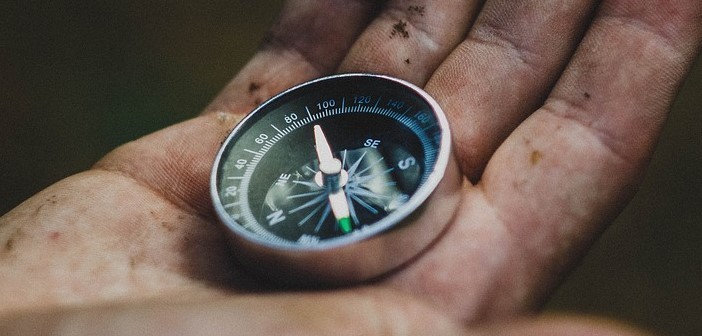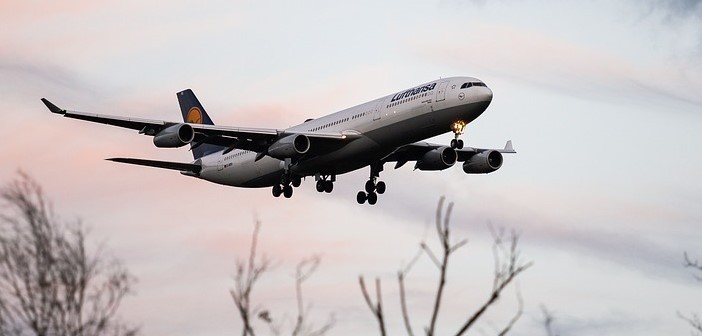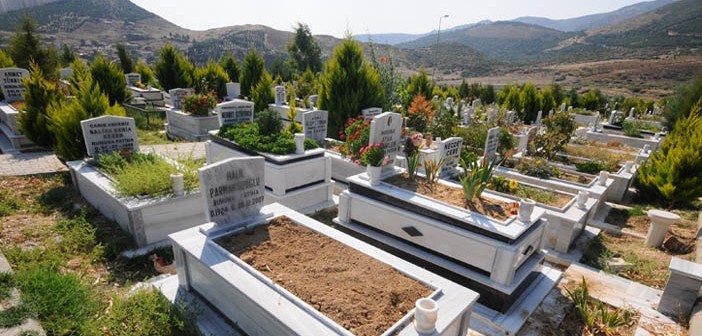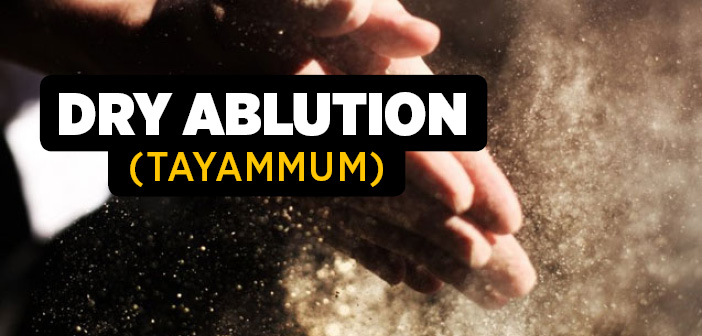
Dry Ablution (Shafii)
What is dry ablution? What is tayammum?
Tayammum is the symbolic performance of ablution with clean earth (soil or dust) by striking the earth with two hands and wiping the face and hands, when no water is available to perform wudu’ or when water is available, but cannot be used for various reasons (such as danger to life or health).
Tayammum, which is one of the easiness provided by our religion Islam for hard times, was practiced by the Prophet Muhammad during his journey from Mecca to Medina in the 6th year of Hijrah. In the same year, while travelling to carry out a military expedition to Banu Mustalik tribe, the prophet along with his army rested the night at a place. When they woke up to pray the Dawn Prayer, they could not find any water. So Allah revealed the following verse to the Prophet:
“ O you who believe!.. But if you are ill or on a journey or one of you comes from the place of relieving himself or you have contacted women and do not find water, then seek clean earth and wipe over your faces and hands with it. Allah does not intend to make difficulty for you, but He intends to purify you and complete His favor upon you that you may be grateful.”[1]
I. The Conditions That Make Tayammum Permissible
- Lack of water: If there is possibility of finding water in close distance, it becomes obligatory to search for it. One should ask fellow travelers (if there is any) if they have any water. It is not necessary to ask every person in the group one by one. One who hopes to find water in a certain direction should go towards that direction as far as he can see.
If those who are resident in a place know the existence of water in a distant place, they are not allowed to perform dry ablution even if there is the danger of missing prayer time. They should go there and perform the minor ablution. The travelers who lodge in a place do not have to go to a distance farther than 4000 paces (around 3 km).
If there is cut in city water and there is no water around, one should buy water and perform minor ablution if he can afford it. If the seller asks for water more than the market price and the buyer is a poor person, he is allowed to perform dry ablution.
If the person who cannot find water hopes to find water later towards the end of the prayer time, he should wait until the end of prayer time. If such person does not wait and performs ritual prayer by performing dry ablution, his prayer is acceptable, but what he does is not a good deed.
- Not having enough water and needing water: If there is not enough water to perform a full minor ablution, one should use as much as possible of the water for minor ablution in accordance with the sequence of the acts of the minor ablution. There is no requirement of sequence in the major ablution. In both types of ablution those parts of the body where water is insufficient to wash should be wiped by using soil.
One who does not have have enough water to perform the full minor ablution and does not have enough soil to perform the dry ablution should perform the minor ablution as much as he/she can with water in accordance with the sequence required for the minor ablution and then perform the ritual prayer.
A person who has only enough water to remove impurities from the body should remove impurities by using the water he has and then perform dry ablution to observe the ritual prayer.
If a person only has water enough for the purpose of drinking for him and other living beings that are with him, then that person is allowed to perform dry ablution to observe the ritual prayer.
- Endangerment towards health if the minor or the major ablution is performed with water or in the case the usage of water is impossible: If washing the body with water is dangerous for health, then it becomes permissible to perform the dry ablution. If the bathroom or the water is cold, which carries the risk of death or the risk of losing a limb; it becomes permissible to perform the dry ablution. One who is afraid of catching a serious disease because of using water, or who is afraid of prolonging the time of recovery of his disease, is also allowed to perform the dry ablution.
II. The Conditions of Performing Dry Ablution
- It should be performed after the beginning of the time of prayer.
- There should exist an excuse, such as sickness, being on a journey, which makes performing dry ablution permissible. (This subject is dealt with in detail in the previous section).
- If there is no water, one should search for water. Even if there is water, it is not be possible to use it due to a legal justification, such as an illness.
- There should be clean soil or dust of the earth to perform dry ablution with it.
III. Essential Parts of Dry Ablution (Arkan)
- Intention: It is obligatory (wajib) to state an intention by saying a statement like “Nawaytu istibahata fard al-salah” (I intend to make the obligation of prayer or performance of the prayer permissible).
- To wipe the whole face after striking the hands on the soil or dust of the earth.
- To wipe the forearms after striking the hands on the soil or dust of the earth.
- To follow the sequence: first face, then the arms should be wiped.
- To make sure to convey the clean soil or dust of the earth up to the limbs that will be wiped (face and arms)
IV. The Sunnah Acts of Dry Ablution
- To turn towards the direction of qiblah.
- To begin tayammum by saying the name of Allah.
- To strike the clean earth twice, once for the face and once for the arms. To separate the fingers when striking the hands on the soil or dust of the earth.
- To wipe the upper face before the lower, to wipe the right arm before the left.
- When wiping the arms, to start from the tip of the fingers; to wipe the outer side of the arms before their inner sides.
- To shake or to blow the dust (if there is any) off the arms and face.
- To wipe the limbs consecutively without giving a break between them.
- To wipe between the fingers. To take off the rings (if there is any) (if there is a ring, it is obligatory to take it off before the second wiping).
- To say the proclamation of faith (kalima al-shahada) after finishing dry ablution and to recite the supplications recited after performing the minor ablution.
V. How to Perform Dry Ablution Properly
First, the sleeves need to be rolled up. The person who will perform the dry ablution first intends it with heart and tongue and then, by keeping the fingers separate, strikes his hands on the earth or something made from earth and moves them forward and then backward. He then shakes his hands to remove the dust. After that, he wipes his face beginning from the hair growing line down below the chin. In this way, the first strike to the earth is fulfilled. Then, he strikes his hands to earth for a second time, moves them forward and backward, and shakes the excess dust off his hands.
He then separates the thumb and index finger of his left hand from each other. He keeps his index, middle, ring and the little fingers together. By the inner sides of these fingers, he wipes the outer side of his right arm from fingertip to the elbow. Curling his left thumb, he then wipes the inner side of his right arm beginning from elbow down to the fingers. He then does the same steps with his right hand to his left arm. In this way, he completes his dry ablution.
It is advised that in order to perform tayammum properly, one should make sure that while performing the dry ablution, jewelry, watches and other accessories are removed.
VI. Things That Nullify Dry Ablution
- Anything that nullifies wudu’ and ghusl also nullifies tayammum.
- When the valid excuse, which makes the dry ablution permissible ends, dry ablution becomes nullified. Such as finding the water or when the illness that prevents the usage of water gets better.
There are three situation related to finding water or end of the state of excuse:
- a) The dry ablution becomes invalidated immediately if one finds water or the state of excuse ends before the beginning of the performance of the ritual prayer. At this point performing the minor ablution for prayer becomes a requirement.
- b) If one sees water or the state of excuse ends while performing the ritual prayer, it is more virtuous to stop praying and perform the minor ablution. However, if there is little time left to the end of the time of the next prayer, the ritual prayer should be completed. Such ritual prayers are deemed to be valid.
- c) If one finds water or the state of excuse ends after performing the ritual prayer, it is not necessary to re-perform the ritual prayer. However, if a traveler forgets that he has water in his luggage or if he cannot find it there, and then remembers where it is after performing the ritual prayer, he needs to make up the prayer he performed.
VII. Some Rulings Related to Dry Ablution
According to Imam Shafii, one may perform only one obligatory prayer and more than one supererogatory prayer by performing one dry ablution.[2] Since funeral prayer is not an individually obligatory (fard ayn) prayer, one may perform one obligatory prayer and more than one funeral prayer by performing one dry ablution.
By performing one dry ablution, a person cannot perform two obligatory circumambulations around the Ka’bah, one obligatory circumambulation around the Ka’bah and one obligatory ritual prayer, one obligatory ritual prayer and one votive prayer, a Friday sermon and the obligatory cycles of Friday prayer. That person must perform two separate dry ablutions and perform the above mentioned acts of worship separately.
If one performs dry ablution because of cold and then performs the ritual prayer in that state, he should make up that ritual prayer when he finds water since se this is a rare situation.
If the limbs that are to be wiped during the dry ablution are wrapped with bandages, the bandages need to be undone during the dry ablution. After performing dry ablution, the bandages should be wiped and then wrapped back over the limbs. However, if untying the bandages may cause health risks, then the dry ablution should be performed over the bandages and then when water can be used, ritual prayers performed by dry ablution need to be made up.
When there is a problem, like an illness, burn, or a wound, with the limb(s) of minor ablution, and there is no bandage(s) over it (them), it is obligatory to perform dry ablution by moving earth lightly over such limbs.
When someone in the state of major ritual impurity performs the dry ablution, starts reciting the Qur’an, and just then sees water, his dry ablution becomes invalid as soon as he sees water.
One may sleep with the spouse during the time of a prayer even if he/she knows that there will not be any water to perform the major ablution. Under such circumstances, he/she is allowed to perform the dry ablution and then observe the ritual prayer. There is no need to make up that prayer later.
[1] Al-Maida, 5: 6.[2] According to Hanafi School, one can perform more than one obligatory or supererogatory ritual prayer by performing one dry ablution.
Source: Fiqh1 (According To The Shafi’i School Of Islamic Law), Erkam Publications
The Definition of The Science of Fiqh (Shafii)
The Importance of The Science of Fiqh (Shafii)




